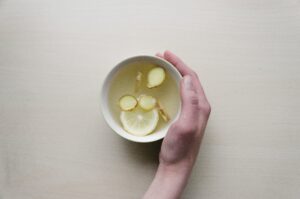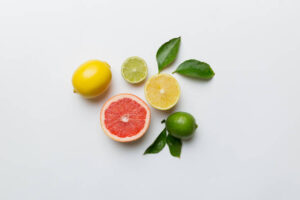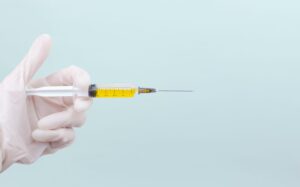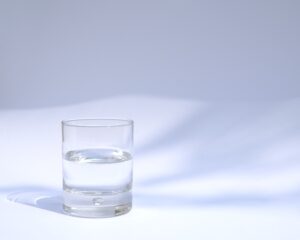There is no denying that it’s the season of spring allergies: pollen is showering from trees and meadows are in bloom. A person may experience allergies either: 1. seasonal allergies (like spring allergies) which mean that you are susceptible to allergens that are only around during particular seasons of the year, and 2. perennial allergies which mean allergens like dust, mites, or pet fur cause your allergic reaction all year round.
There are a number of ways in which allergies and intolerances might manifest. Congestion, wet eyes, sneezing, digestive problems, joint discomfort, skin problems, and fatigue- can all be signs of them. The crucial element is the substance’s ability to trigger an immunological response and inflammation.
What Causes Allergies?
Hay fever, commonly known as allergic rhinitis, is an upper respiratory infection brought on by pollen from flowering plants. Your immune system releases antibodies and the chemical histamine after being exposed to pollen. All of the typical allergy symptoms are caused by the histamine reaction.
How to Cope with Spring Allergies?
Those with allergies are aware of how challenging finding relief can be, especially in years with high pollen counts. Fortunately, there are some practical strategies you may do to decrease allergic responses.
1. Nambudripad’s Allergy Elimination Techniques or NAET.
It is an allergy elimination treatment, it works by retraining the body’s immune system to no longer react to those substances. This treatment is very safe and non-invasive it can be used for individuals of any age. To learn more about this treatment please see the article link https://ndnr.com/autoimmuneallergy-medicine/naet-resolving-allergies-sensitivities/

2. Include Fruits Rich in Vitamin C in Your Diet.
Did you know that some foods can help to lessen allergy symptoms? Anti-inflammatories, omega-3-rich seafood, and fruit strong in vitamin C have all been demonstrated to have positive effects.
Histamine is to blame for the itching, hives, and other discomfort you experience during an allergic reaction. You can overcome it using vitamin C. According to studies, increased vitamin C levels help histamine break down more quickly once it is produced, reducing allergic symptoms.
The secret to downplaying allergies is vitamin C food’s ability to reduce inflammation in addition to its ability to combat histamine. Simply put, vitamin C-rich foods like oranges, strawberries, apples, and melons reduce the inflammatory effects of allergic reactions.

3. Allergy Injections.
Docere Wellness Center provides allergy injections. These two treatments work together to balance the body and lessen the overreaction that the body experiences when exposed to an allergen. Typically, the procedure calls for three injections spaced one week apart. According to clinical observations, people begin to feel better from their spring allergies after the second injection. They are a highly safe option and have no adverse effects.

4. Drink Lots of Fluids such as water, natural fruit juice, herbal teas.
Water should definitely be the default option for everything. Yet in this instance, water is one of the finest options since it aids in liquifying the mucus that is traveling down the back of your throat. It’s disgusting to consider, but it’s essential, especially if post-nasal drip really impacts you.
Vitamin C is quite effective. Orange juice has a well-deserved image as the beverage that supports your immune system. It has that reputation for a reason. Our bodies definitely benefit from it, especially in the fight against allergies. Not that it will significantly lessen allergy problems, but it will undoubtedly help.

If you or someone you know is tired of using anti-histamines during the spring/summer month or just avoids the outdoors altogether, either of these can be a great option. Stop avoiding and suppressing and start enjoying nature! Wishing everyone a happy and healthy spring!

